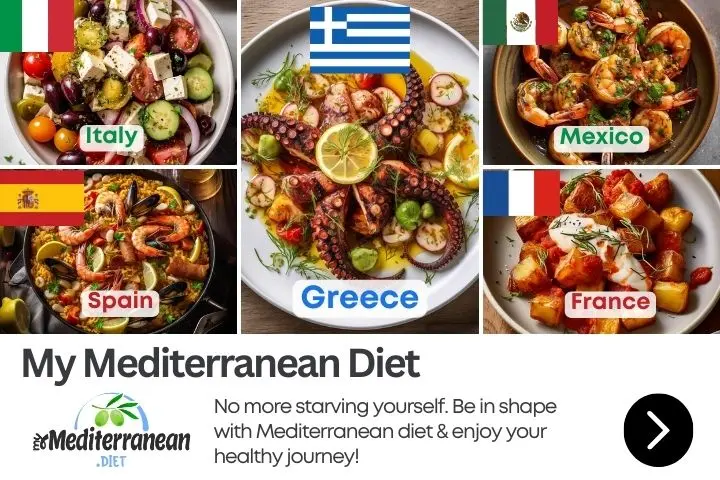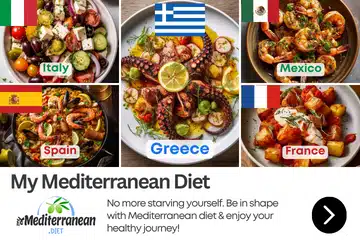The Mediterranean diet, renowned for its rich flavors and myriad health benefits, has captivated the culinary and wellness worlds. Central to this diet is not just the food but also the beverages that accompany it, with wine playing a pivotal role. This article delves into the harmonious relationship between wine and the Mediterranean diet, emphasizing the crucial concept of moderation. We’ll explore how wine when consumed thoughtfully, can complement the nutritional and lifestyle tenets of the Mediterranean way of eating. From the sun-drenched vineyards of the Mediterranean basin to your dining table, we unravel the essence of enjoying wine as a component of one of the world’s healthiest diets. Join us in understanding how a glass of wine, savored in balance, can be a toast to good health and well-being.
Introduction to the Mediterranean Diet and Its Core Principles
The Mediterranean diet, a culinary legacy rooted in the countries bordering the Mediterranean Sea, is more than just a diet; it’s a sustainable lifestyle embraced for centuries. Characterized by a rich diversity of flavors and ingredients, this diet is celebrated for its deliciousness and numerous health benefits.
1. A Rich Tapestry of Foods: At its heart, the Mediterranean diet is a celebration of regional and seasonal foods. It primarily emphasizes plant-based ingredients like fruits, vegetables, whole grains, nuts, and legumes. Olive oil, with its heart-healthy fats, is the cornerstone of this diet, replacing other fats and oils.
2. The Role of Fish and Poultry: While the diet includes a variety of protein sources, there is a particular emphasis on fish and poultry. Rich in omega-3 fatty acids, fish like sardines, mackerel, and salmon are staple, enjoyed for their taste and health benefits. Poultry, consumed in moderation, complements the plant-based focus of the diet.
3. Limited Red Meat Consumption: Red meat finds a place in this diet, but its consumption is limited. When consumed, it’s usually in small portions, savored for its flavor rather than as the centerpiece of a meal.
4. Dairy in Moderation: Dairy products, especially cheese and yogurt, are consumed in moderation. These foods provide essential nutrients but are balanced with other elements of the diet to maintain overall dietary harmony.
5. Wine as a Cultural Staple: Wine, particularly red wine, is integral to the Mediterranean diet but is consumed in moderation. Traditionally, wine is enjoyed with meals, contributing to the social and pleasurable aspects of dining. It’s this responsible consumption, paired with a diet rich in whole foods, that underscores the diet’s approach to alcohol.
6. An Emphasis on Freshness and Simplicity: The Mediterranean diet values the natural taste of food, often prepared with minimal processing. This not only retains the nutritional value of the ingredients but also highlights their inherent flavors.
7. A Lifestyle Beyond Food: Finally, the Mediterranean diet is part of a broader lifestyle. It encourages physical activity, shared meals with family and friends, and a general approach to life that emphasizes enjoyment and balance.
In summary, the Mediterranean diet is a holistic approach to eating and living. Its core principles promote a balanced, varied, and sustainable lifestyle, with wine as a complementary element enjoyed with respect for moderation. This diet, steeped in cultural traditions and natural ingredients, offers a blueprint for healthy living that has stood the test of time.
The Health Benefits of Wine When Consumed in Moderation
Wine, particularly red wine, has been a subject of scientific interest for its potential health benefits when consumed in moderation. This aspect of the Mediterranean diet showcases how a beverage, often perceived indulgently, can contribute positively to health when enjoyed responsibly.
1. Rich in Antioxidants: Red wine is renowned for its high concentration of antioxidants, particularly resveratrol, flavonoids, and tannins. These compounds are believed to offer various health benefits, including reducing the risk of heart disease and certain cancers. Antioxidants help protect the body’s cells from damage caused by free radicals and inflammation.
2. Heart Health Benefits: Moderate wine consumption has been linked to a reduced risk of heart disease. This is attributed to wine’s ability to increase ‘good’ HDL cholesterol and decrease ‘bad’ LDL cholesterol, alongside its anti-inflammatory properties. The phenolic compounds in wine, particularly in red varieties, also play a role in reducing blood pressure and improving overall heart health.
3. Potential to Aid in Longevity: Some studies suggest that moderate wine consumption, as part of a balanced diet, might contribute to a longer lifespan. This is thought to be due to wine’s role in reducing the risk of certain chronic diseases and its potential to protect against oxidative stress.
4. Cognitive Health Benefits: Emerging research indicates that moderate wine consumption may have a protective effect on brain health. The antioxidants in wine might help in maintaining cognitive functions and reducing the risk of neurodegenerative diseases like Alzheimer’s and Parkinson’s.
5. Aiding Digestive Health: Wine, especially when consumed with meals, can aid in the digestive process. It stimulates the production of stomach acids, aiding in the efficient breakdown of food. This harmonizes well with the Mediterranean diet’s emphasis on enjoying meals slowly and mindfully.
6. Social and Psychological Benefits: Beyond physical health, wine plays a role in the social and psychological well-being of individuals. In Mediterranean cultures, wine is often enjoyed in a communal setting, contributing to social bonding and stress reduction.
However, it’s crucial to define what ‘moderation’ means in the context of wine consumption. Typically, this refers to one to two glasses per day for men and one glass per day for women. Exceeding these amounts can negate the health benefits and lead to adverse effects.
In conclusion, wine, when consumed in moderation, aligns perfectly with the principles of the Mediterranean diet. It contributes to physical, cognitive, and social well-being, illustrating how a balanced approach to diet and lifestyle can yield significant health benefits.

Defining Moderation: How Much Wine is Healthy?
Understanding moderation in wine consumption is key to reaping its benefits within the Mediterranean diet. But what exactly constitutes moderation? Let’s explore this to provide a clear and healthy guideline for enjoying wine.
1. The Definition of Moderation: Moderation, in the context of wine consumption, generally means up to one drink per day for women and up to two drinks per day for men. This is based on the standard serving size of wine, which is typically 5 ounces (about 150 ml).
2. Factors Influencing Moderation: It’s essential to consider individual factors such as body size, age, genetics, and overall health when determining what moderation means personally. For instance, some people may be more sensitive to alcohol and may need to consume less to fit the definition of moderation.
3. The Risks of Excess Consumption: Exceeding moderate drinking levels can lead to various health problems, including an increased risk of heart disease, liver disease, certain cancers, and addiction. Therefore, understanding and sticking to moderation is crucial for health.
4. The Role of Wine in the Diet: It’s also important to remember that wine should complement a diet that’s rich in fruits, vegetables, whole grains, and lean proteins. Wine is not a substitute for other vital nutrients and should be part of an overall balanced diet.
5. Cultural Variations in Wine Consumption: Different cultures within the Mediterranean region have varying norms around wine consumption. For example, in some areas, wine is almost exclusively consumed with meals, while in others, it may be enjoyed more casually. Understanding these cultural differences can provide a broader perspective on how to integrate wine healthily into one’s diet.
6. Listening to Your Body: Ultimately, the best approach is to listen to your body. If you notice any negative effects from drinking wine, even within moderate limits, it might be best to reduce your intake or discuss it with a healthcare professional.
In conclusion, moderation in wine consumption is a flexible concept that depends on individual circumstances and cultural contexts. By adhering to these guidelines, one can enjoy the benefits of wine as part of the Mediterranean diet, ensuring that it adds to health and enjoyment rather than detracting from it.
Wine Pairing and Consumption in Mediterranean Cultures
Wine is an integral part of the Mediterranean diet, not just for its taste or health benefits but also for its cultural significance. Understanding how Mediterranean cultures pair and consume wine offers insight into the art of enjoying wine as part of a balanced lifestyle.
1. Wine with Meals: In many Mediterranean cultures, wine is predominantly consumed with meals. This practice not only enhances the culinary experience but also moderates wine intake, as it’s paired with food rather than consumed on its own.
2. The Art of Pairing: Mediterranean cuisine is diverse, and so are its wine pairings. Generally, the rule of thumb is to match the wine with the dominant flavors of the dish. For example, robust red wines pair well with hearty dishes, while lighter whites complement seafood and vegetables.
3. Local Varieties and Traditions: Each region in the Mediterranean has its own local wine varieties, which are often paired with local dishes. These pairings are based on centuries of tradition and are a testament to the region’s culinary heritage.
4. Festive and Social Settings: Wine is also a central feature in festive and social gatherings. It’s a symbol of hospitality and celebration, often shared among family and friends during gatherings and special occasions.
5. Moderation as a Cultural Norm: While wine is enjoyed regularly, moderation is deeply ingrained in Mediterranean cultures. This is reflected in the way wine is integrated into daily meals and social practices.
6. Seasonal and Fresh Ingredients: The emphasis on fresh, seasonal ingredients in Mediterranean cooking extends to wine choices as well. Seasonal variations can influence both the food and the wine selections, offering a harmonious dining experience throughout the year.
7. Educational Aspect: In many Mediterranean regions, learning about wine is part of the cultural education. This includes understanding the winemaking process, the characteristics of different varieties, and the principles of pairing.
In summary, wine consumption in Mediterranean cultures is a refined practice that balances enjoyment with responsibility. It’s an integral part of the diet that complements the food and enhances the overall dining experience, all while adhering to the principles of moderation and balance.

Practical Tips for Incorporating Wine into a Healthy Lifestyle
Incorporating wine into a healthy lifestyle, especially within the framework of the Mediterranean diet, requires thoughtful consideration. Here are some practical tips to enjoy the benefits of wine while maintaining a balanced diet and lifestyle.
1. Pairing Wine with Meals: As in the Mediterranean tradition, try to consume wine with meals. This not only enhances the dining experience but also helps in moderating intake.
2. Understanding Portion Sizes: Be mindful of serving sizes. A standard wine serving is 5 ounces (150 ml). Using smaller glasses can help in controlling the amount consumed.
3. Choosing Quality Over Quantity: Opt for quality wines that you genuinely enjoy. You’re more likely to savor the wine and drink slowly, appreciating its flavors, rather than drinking larger quantities of lesser quality.
4. Days Without Wine: Consider having some days in the week where you don’t consume any alcohol. This helps in maintaining moderation and gives your body a break.
5. Listening to Your Body: Pay attention to how your body reacts to wine. If you notice any negative effects, it may be best to reduce your intake.
6. Balancing with Water: Always balance your wine consumption with water. This helps to stay hydrated and can reduce the effects of alcohol.
7. Incorporating Variety: Don’t limit yourself to just one type of wine. Experiment with different varieties and regions, which can be a fun and educational experience.
8. Making Informed Choices: Educate yourself about the wines you’re drinking. Understanding where your wine comes from, its production process, and its characteristics can enhance your appreciation and help you make healthier choices.
9. Socializing Responsibly: Enjoy wine as part of social occasions, but always drink responsibly. Social settings should not be an excuse for excessive drinking.
10. Consult Health Professionals: If you have any health concerns or are taking medications, consult with a healthcare professional about how wine can fit into your lifestyle.
Incorporating wine into a healthy lifestyle is about balance, mindfulness, and enjoyment. By following these practical tips, you can appreciate wine as a complement to a nutritious diet and a fulfilling life.
The Mediterranean diet is a real culinary treasure. Centered around foods like fruits, vegetables, olive oil, and lean proteins, this diet has been linked to numerous health benefits. From reducing the risk of heart disease to supporting cognitive function, the Mediterranean diet is a flavorful and scientifically-supported path to a healthier lifestyle.
Conclusion
The journey through the world of wine and the Mediterranean diet highlights a profound truth: moderation and balance are not just dietary choices, but a way of life. The Mediterranean approach teaches us that wine, when consumed in moderation, can enrich our lives both culturally and health-wise. This diet, with its focus on fresh, wholesome foods and communal eating, provides a canvas where wine enhances the flavors and experiences of meals.
In embracing this lifestyle, we learn the importance of savoring each sip and bite, recognizing that the quality of what we consume matters more than quantity. The Mediterranean diet, interspersed with moderate wine consumption, offers a pathway to a healthier, more fulfilled life, where food and drink are sources of nourishment, joy, and connection.
As we integrate these principles into our own lives, we find that moderation in wine consumption is not a restriction, but a liberation. It allows us to enjoy the richness of wine and food, while also respecting our body and well-being. The Mediterranean diet, with wine as a harmonious element, is a testament to the age-old wisdom that in balance, there is beauty and health.



















